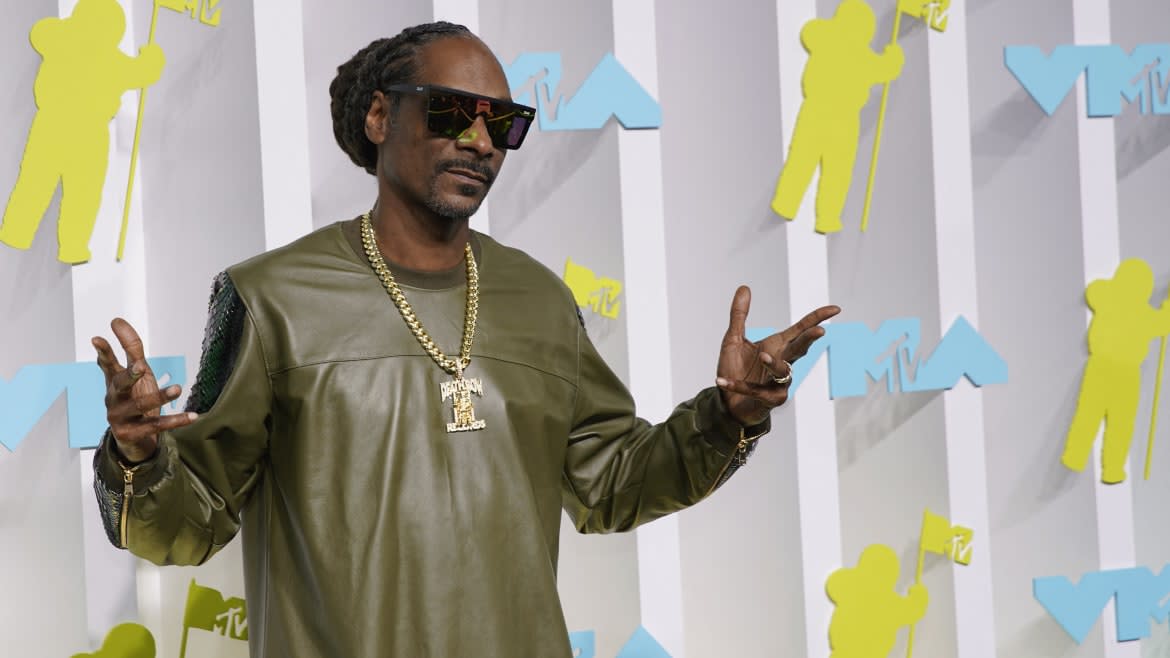Snoop Dogg and Master P Accuses Walmart of Bizarre Cereal Conspiracy in Lawsuit

Rappers Snoop Dogg and Master P have claimed that Walmart and Post Consumer Brands conspired to keep their newly-launch cereals from ever reaching store shelves, suggesting in a lawsuit Tuesday that their “diabolical actions” tanked sales.
The lawsuit was filed in Minnesota by the rappers’ company, Broadus Foods, whose attorneys claim Walmart and Post, the manufacturer of the rapper’s cereal, sabotaged sales through “collusion and conspiracy.”
“Post essentially worked with Walmart to ensure that none of the boxes of Snoop cereal would ever appear on store shelves,” the filing stated.
Among the tactics alleged by the rappers, the lawsuit said Walmart inexplicably charged as much as $10 a box for the cereal in some stores, and withheld the product from being put out for sale in others. This was done to “force Broadus Foods out of the market,” the lawsuit said.
“Post ensured that Snoop Cereal would not be available to consumers or that it would incur exorbitant costs that would eliminate any profit to Broadus Foods,” the complaint added.
Snoop Dogg Reveals ‘Giving Up Smoke’ Announcement Was Just a Clever Ad
The legal battle revolves around Snoop Cereal, which was launched by Snoop Dogg and Percy Miller in 2022 with Broadus Foods as its manufacturer.
Promotion of the product touted it as being the first black-owned cereal company in the country. It was to be sold exclusively at Walmart after its launch in July 2023.
That launch didn’t go as planned, however, according to the lawsuit. It said the cereal had poor sales, yet was still serially listed as being sold out online.
With sales and the status of the cereal’s availability not adding up, the lawsuit said Broadus Foods called Walmart store employees to inquire about the discrepancy. Those workers then reported that the cereal was being held in stockrooms and was “coded to not be put out on the store shelves,” the lawsuit claimed.
The lawsuit suggested Post wanted the cereal to fail because the rappers refused to sell their product to Post outright before its launch. This, the lawsuit alleged, led Post’s leadership to agree to produce the rappers’ cereal under phony pretenses.
In a statement to the Minnesota Star-Tribune, Post ignored the rappers’ allegations and said it was disappointed Snoop Cereal wasn’t selling more.
“Post Consumer Brands was excited to partner with Broadus Foods, and we made substantial investments in the business,” the statement said. “We were equally disappointed that consumer demand did not meet expectations.”
The rappers’ filing said otherwise, however, claiming their cereal was not treated the same by Post and Walmart despite there being a profit-sharing agreement.
The lawsuit was filed in Dakota Country District Court, which is near where Post is headquartered, just south of Minneapolis. Snoop Dogg and Master P are being represented by Benjamin Crump, an attorney who has taken on some of the country’s largest civil rights cases in the last decade.
“Snoop Dog and Master P founded Broadus Foods with the vision of creating a family-owned company that promotes diversity in the food industry and provides opportunities for minority-owned products," Crump said Tuesday in a statement. “Broadus Foods aimed to inspire economic empowerment among minorities and contribute to charitable causes addressing hunger and homelessness.”
Snoop Dogg’s 24-Year-Old Daughter Is Recovering From a ‘Severe Stroke’
The lawsuit said Master P and Snoop Dogg founded the company to create an affordable cereal that could become profitable and be handed down to their kids. Snoop Cereal’s website now links to Amazon, where its cereal is now being sold for $5.99 a box.
Walmart released a vague statement on the lawsuit, saying it values its relationships with suppliers and that it would “respond as appropriate with the court once we are served with the complaint.”
The lawsuit said Broadus Foods is seeking monetary damages from Walmart and Post, accusing the latter of breach of contract, breach of fiduciary duty, and negligent misrepresentation, among other things.
Get the Daily Beast's biggest scoops and scandals delivered right to your inbox. Sign up now.
Stay informed and gain unlimited access to the Daily Beast's unmatched reporting. Subscribe now.


